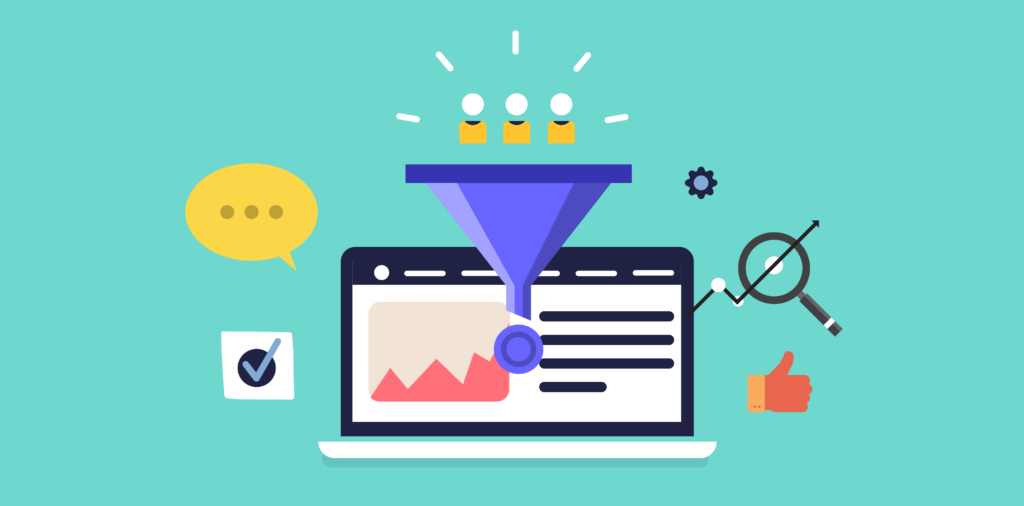What is Conversion Rate?
It’s not 1997 anymore. Nobody is impressed by the dancing baby. Websites that are just some kid’s opinions on Xena: Warrior Princess and some cool pictures of electric guitars aren’t really drawing much traffic anymore. Websites should have more of a goal than that. They should provide information, or a service, or a product, or access to something that people want. And websites should be good at providing the thing that visitors are looking for. Just how good a given website really is at providing what they hope to provide is called conversion rate.

What is Conversion Rate?
It’s not 1997 anymore. Nobody is impressed by the dancing baby. Websites that are just some kid’s opinions on Xena: Warrior Princess and some cool pictures of electric guitars aren’t really drawing much traffic anymore. Websites should have more of a goal than that. They should provide information, or a service, or a product, or access to something that people want. And websites should be good at providing the thing that visitors are looking for. Just how good a given website really is at providing what they hope to provide is called conversion rate..
In Internet marketing terminology, conversion rate refers to whether or not people are getting what they want from a website. For businesses, that means generating leads or making sales. For informational websites, that can mean whether or not visitors are getting to the pages with the information they wanted. A website should have a goal, and that can be anything from gathering user data to selling a product. Conversion rate refers to how often that goal is met.
Why is it important?
We’ve all seen bad websites. From the moment you land on the page, something feels off. You definitely aren’t giving these guys anything, whether it’s payment for a product or service or even your email address or phone number. After maybe 30 seconds of looking around, a couple clicks and a little scrolling, you’re out of there.
You bounced. Maybe that website had exactly what you were looking for, but for some reason, you didn’t follow through. It could have been the shoddiness of the design. It could have been that something about it activated your skepticism. Maybe it had the information you wanted but you couldn’t find it right away. Maybe you were just feeling ambivalent and the site didn’t do a good job convincing you to follow through.
Who would benefit from better conversion rates?
Websites suffering from having a poor conversion rate, from doing a poor job of meeting its goals, are wasting time, money and resources. In the modern world, having a good online presence is an essential part of doing business and interfacing with the public. So who can afford a poor conversion rate?
Anyone trying to reach people through their online presence should be concerned with having a high conversion rate. What’s the point of drawing traffic if nobody is following through and making purchases, leaving information, or otherwise meeting the website’s goal? Conversion is especially important for small business owners, where competition for traffic volume can be fierce. Doing everything they can to earn the interest and trust of their visitors is essential to make the most of the traffic they do receive.
How can conversion be improved?
Remember that bad website? There are many things you can do to prevent your site from being that experience for your visitors. One key element is developing a trustworthy, professional appearance. Everything from quality images and snappy writing to the shape and layout of each page will be a factor in how your site is perceived. People aren’t going to give their time, their money or their personal information to a website that looks like it was developed by an amateur or like it hasn’t been updated since the nineties.
Another important way to improve your conversion rate is to make your website as easy to use as possible. If you are running a business, you want to tell people what you do, why you do it the best, and how they can get it from you. This can be as obvious as having clear and accurate descriptions of your products and services, or as subtle as where to put the “Add to Cart” button.
Your website can be much more than just a catalog; it can be a source of information for people looking to answer a question or solve a problem. People aren’t likely to make an online purchase without researching the product and learning if what you’re offering is really what they want or need. When you do a good job providing information, potential customers will be more likely to trust your business. In addition to the information you provide, another great way to build user trust and improve conversion rate is hosting customer reviews. This is a proven way to show users that a website is reputable.
With a focus on making their website the best possible user experience, anyone should be able to see improvement in their conversion rates to make the most of their traffic.

